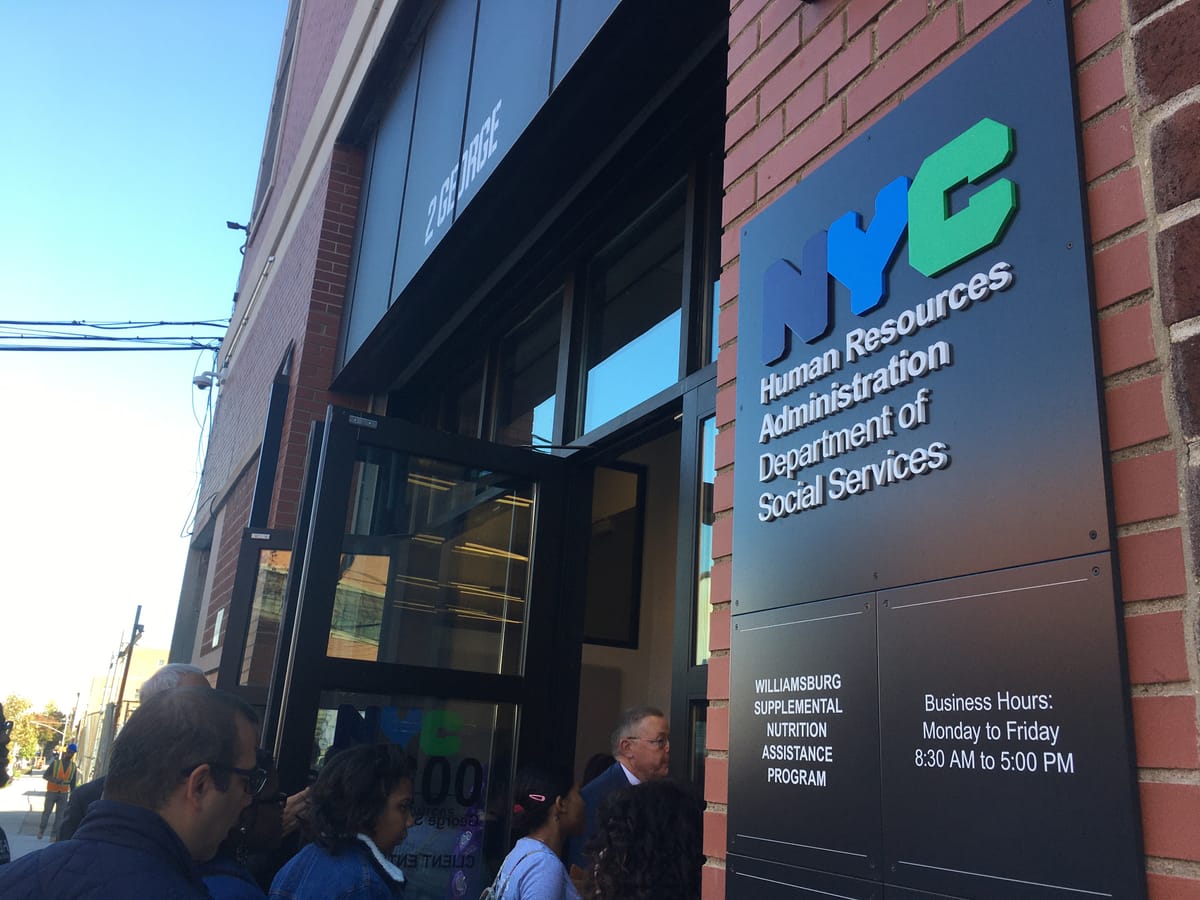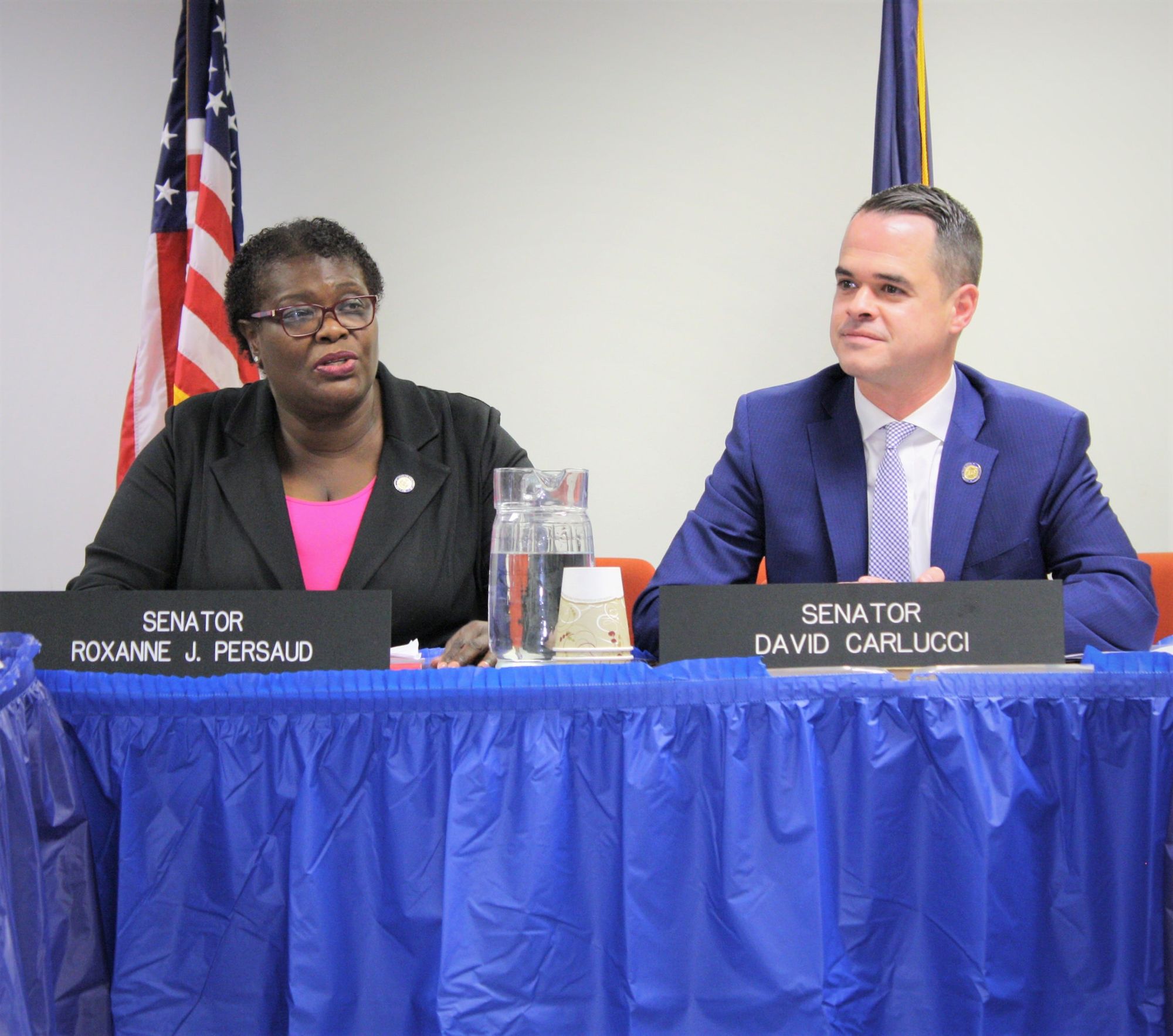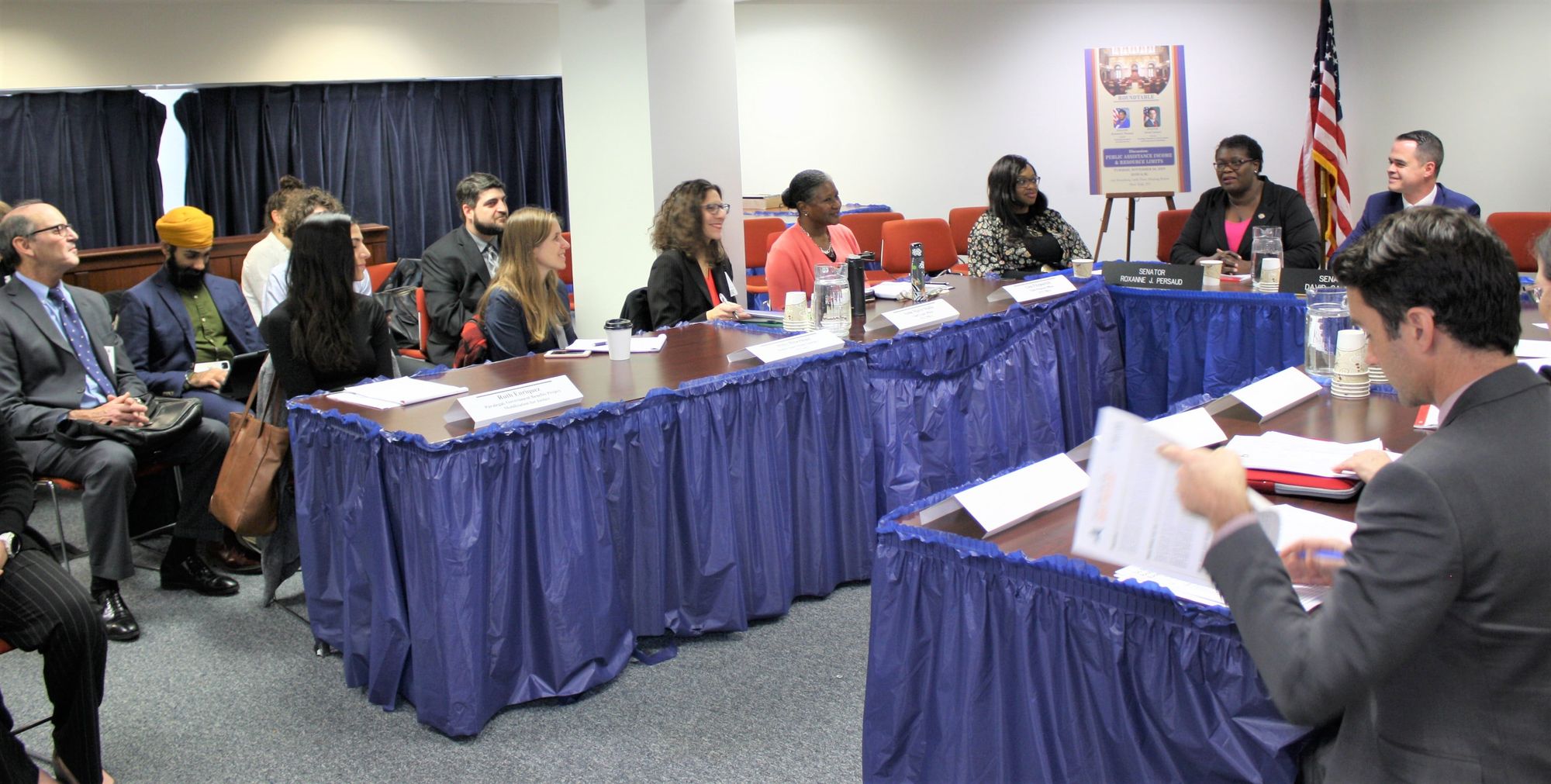Projected $6.1 Billion State Budget Deficit Signals Crisis for Brooklyn’s Poor Families


BROOKLYN — One out of every four Brooklynites lives in poverty and depends on SNAP (the Supplemental Nutrition Assistance Program, formerly known as the Food Stamp Program). Survival could soon become more difficult for them, as lawmakers wrestle with the projected $6.1 billion state budget deficit announced on November 22.
State Sen. Roxanne J. Persaud, a Democrat whose district includes parts of Canarsie, East New York, and Brownsville, co-hosted a roundtable discussion on November 26 to get input from government agencies and advocates for the poor on how to handle the looming crisis. Persaud is chair of the NYS Senate Social Services Committee.
“There are tough times ahead of us,” the senator warned the 10 representatives gathered around the table in a state and city government hearing room in lower Manhattan. “The impending changes will have a chilling effect.”
Changes at the state and federal levels could combine to cause a financial catastrophe for the poor.
The Trump administration proposed a plan earlier this year that would change the guidelines for determining poverty, which could end public assistance for scores of families who are now eligible. At the same time, state lawmakers must contend with a huge budget deficit over the next three years as Medicaid costs skyrocket.

“Everyone is concerned about changes from the federal government and the $6.1 billion budget deficit,” Persaud told BKLYNER. “Too often when we have a deficit, we look at social services, looking at what can be cut.”
Bill Bryan, an attorney with Brooklyn Defender Services, raised an issue that many of his clients encounter. To receive certain benefits, applicants cannot have more than $2,000 in assets. That often means that someone who needs temporary assistance after losing a job must spend their savings before getting assistance.
A consensus emerged around the proposal of raising the assets limit from $2,000 to $4,000. Making people with more money in the bank eligible for benefits sounds counterintuitive. However, the idea is that having an additional cushion of savings could buy more time to prevent homelessness for families living largely from paycheck-to-paycheck. It costs a lot more to shelter a homeless family.
During FY 2014, there were 2,896 Brooklyn families in the shelter system, according to an ICPH study. In neighborhoods such as Crown Heights, Brownsville, and East New York, lack of affordable housing and evictions were the main causes. East New York had the highest number of families, at 564, entering the shelter system.
It is not for lack of spending money. In July, eyebrows were raised when Bklyner reported that the city will be spending approximately $10,000 a month per apartment to house 253 families at two newly constructed Park Slope shelters. Just last month, HRA opened a state-of-the-art service center in Bushwick, with a $6.8 million annual rent.

Abby Biberman, senior supervising attorney at New York Legal Assistance Group, added that homeless services are focused on helping people once they’ve become homeless. She called for a collaboration between the city and state to fund wraparound services to help prevent homelessness, which would be a more efficient use of limited social services resources.
Persaud and co-host Sen. David Carlucci, a Rockland and Ossining Democrat, noted the suggestions.
“I’m optimistic about what the state can do to counteract what the federal government is doing,” Persaud told Bklyner. “We have good people fighting, and I think we will prevail.”
One issue that failed to come up was the mistreatment of poor people seeking assistance at the Human Resources Administration (HRA) offices. A viral video of HRA security guards and an NYPD officer snatching Jazmine Headley’s child from her arms at the Boerum Hill facility last December shined a spotlight on the problem. Last month, a piece in the New York Times discussed the factors that cause tempers to flare, sometimes resulting in HRA security guards assaulting applicants.
Persaud told Bklyner that she’s satisfied with the steps that HRA officials have taken, such as sensitivity training, to address the problems, which she said are relatively rare occurrences.
“We make sure the commissioner (HRA Commissioner Steven Banks) and his staff address those issues as soon as we hear about them,” the senator added.




